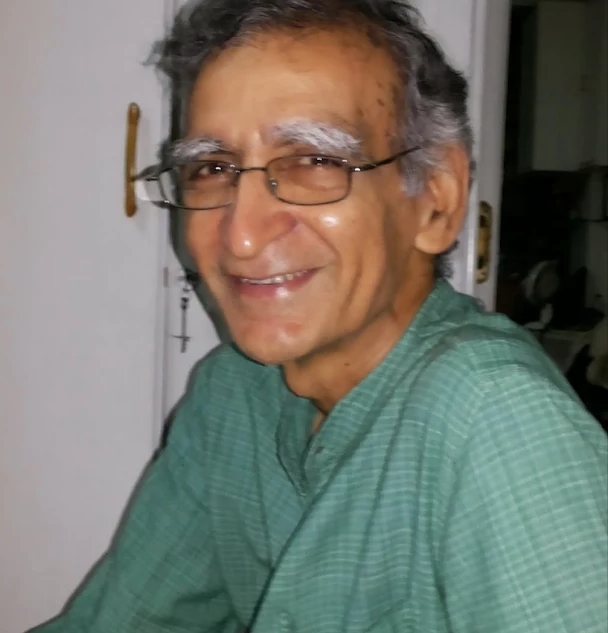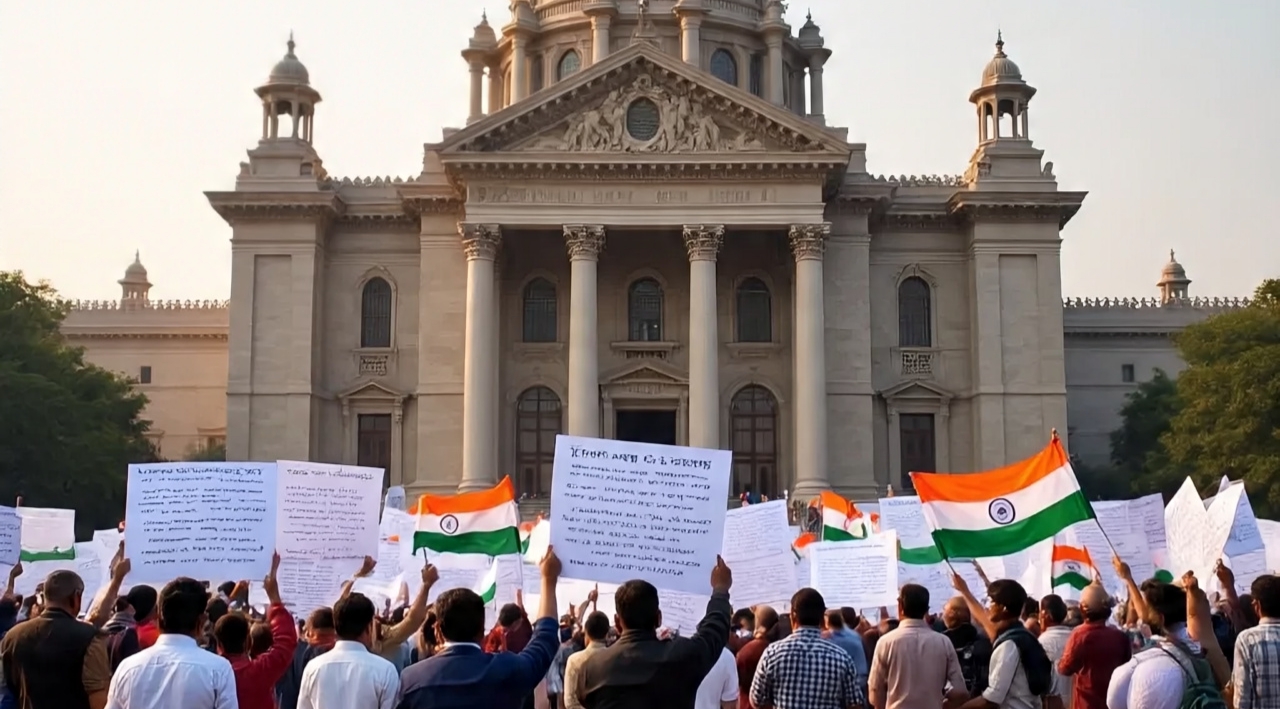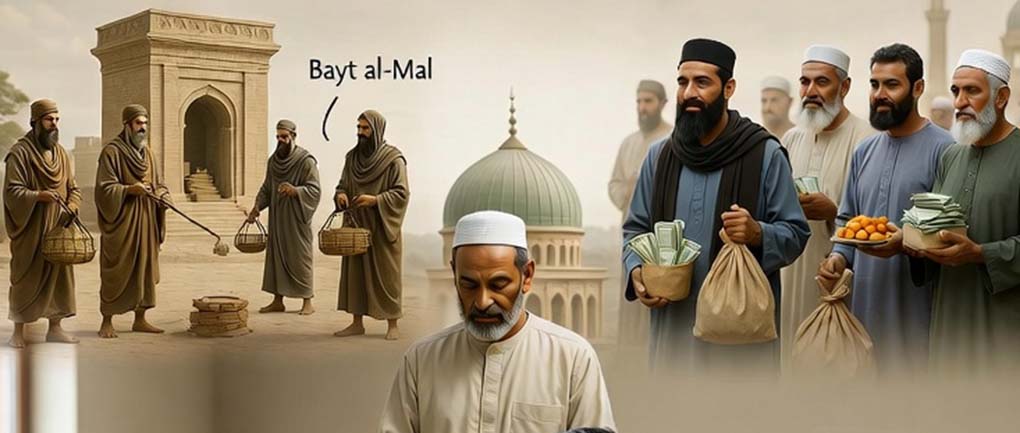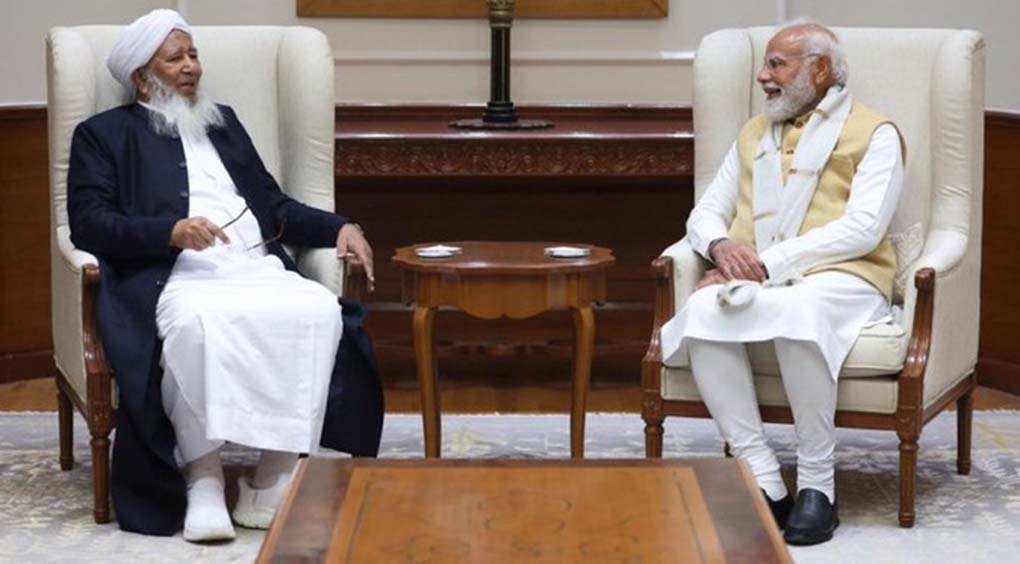 Prof. Ram Puniyani
Prof. Ram Puniyani
Indian society has been riddled with many inequalities. There are some forces who want to do away with the Indian constitution. It is an instrument towards social struggle for equality.
On one hand there have been patriarchal values, glorified in the scriptures, on the other the Varna-Caste, has been legitimized in the society sanctified again by the Holy books. Varna-Caste inequalities find their mention form times immemorial and continue till today.
The first major opposition to this caste inequality, for social equality, for social justice was articulated by Lord Gautama Buddha. His central teaching was Equality, Samataa. It did influence the social system to some extent. Later the counter revolution by Brahmanical forces re-established the caste hierarchy in a rigid way. In medieval times during Kingdoms, the inequality persisted. Saints like Kabir, Namdeo, Tukaram and Narsi Mehta articulated the pangs of caste inequality. In Kerala Narayan Guru started a major movement against the caste system.
With advent of British and introduction of Modern education, the likes of Jotirao Phule and Savitribai Phule took the big step against caste and gender inequality, towards social justice by starting schools for Dalits and women. This was followed up by Babasaheb Ambedkar, who strove for social equality through agitations like Chavdar Talab movement, Kalaram Mandir Movement and by getting Manusmriti burnt. He started Bahujan Hitakarini Sabha and Schedule Caste federation running parallel with freedom movement. After Poona Pact, Gandhi initiated a major move for social equality by moving from village to village with the agenda of Temple entry for dalits and co-dining with the dalits. No less important were the efforts of Periyar Ramasami who initiated ‘Self Respect Movement’.
With freedom came the formation of Constituent Assembly. The father of the Nation, Mahatma Gandhi suggested the name of Babasaheb Ambedkar as the Chief of drafting committee of the Constitution. Ambedkar’s dedicated and committed work ensured that the provisions of equality, social justice and affirmative action for weaker section find their place in the Constitution.
Right from beginning the term, ‘We the people of India’ hints at an inclusive charter which will take care of weaker sections of society. The Constituent Assembly reflected the values of social justice of the freedom movement and the debates of this Assembly had a very positive tone for social justice. It is because of this that various provisions, including the provisions against untouchablity and provisions for reservations, affirmative action became the spinal cord of this charter of Indian people.
In addition to the classic ‘Liberty, Equality and Fraternity, we have ‘Justice’ in our Preamble. This term indicates three major forms of justice, social, economic and political. This is achieved through different provisions of Fundamental Rights and Directive Principles. Social justice stands for equal treatment of all the citizens irrespective of any social distinction based on caste, color, race, religion, sex and so on. “It means absence of privileges being extended to any particular section of the society, and improvement in the conditions of backward classes (SCs, STs, and OBCs) and women. Economic justice denotes on the non- discrimination between people on the basis of economic factors. It involves the elimination of glaring in equalities in wealth, income and property. A combination of social justice and economic justice denotes what is known as ‘distributive justice’. Political justice implies that all citizens should have equal political rights, equal voice in the government. The ideal of justice- social, economic and political- has been taken from the Russian Revaluation (1917).”
Then we have other provisions “The following provisions of the chapter on Fundamental Rights ensure civic equality: a) Equality before the Law (Article 14). b) Prohibition of discrimination on grounds of religion, race, caste, sex of place of birth (Article 15). c) Equality of opportunity in matters of public employment (Article 16). d) Abolition of untouchability (Article 17). e) Abolition of titles (Article 18).” (2)
These lay the foundation for eradication of the ills which persist due to the caste system. The social movements have to be backed by the provisions of law so that the effective implementation of the concept of social justice can be achieved.
Social justice is a very comprehensive term. So, as former Chief Justice Gajendragadkar points out “In this sense social justice holds the aims of equal opportunity to every citizen in the matter of social & economical activities and to prevent inequalities”.
Further to this the constitution has provisions which ensure the effective implementation of the deeper ideology of social justice, “Under Article 15(4) the state shall make any special provision for the advancement of any socially and educationally backward classes of citizen or for the scheduled castes, and the Scheduled tribes and in the same manner by accepting the opportunity of equality to employment under state in Article 16 (1), it has excepted the principle of equalization under Article 16(4). If it is in the opinion of the state that any class of the citizens has not adequately representation under state employment, state shall make any provision for the reservation of appointments. According to Art 46 the State shall promote with special care the educational and economic interests of weaker sections of the people, and in particular, of the scheduled castes and the scheduled tribes, and shall protect them from social injustice and all forms of exploitation.”
Currently we are witnessing a situation where those opposing the very concept of social justice are openly demanding the changing of Indian Constitution like late Bibek Debroy, the Chief of economic Advisory committee of the Prime Minster and many others. As per him, since the Supreme Court has ruled that the executive cannot change its basic structure and it has outlived its time, we should prepare for a new Constitution. More importantly he says this Constitution is a colonial legacy and questions various provisions of the same, particularly the values of socialism, secularism, justice, equality and liberty.
There are other ideologues of Hindu Right wing who are arguing that India is a Civilizational state, (Meaning values of Vedas and Manu smriti) and Constitution cannot be above that. How do we define civilization? The clear-cut articulation of these worthies is that (Brahmanical) Hinduism is the core civilization of India. “They are blaming Left historians for distorting the interpretation of history by giving importance to Islam, and particularly Muslims, more particularly Mughals. They are very pained that Hindu kings like those of Chola dynasty are underrepresented in our national discourse while alien Mughals are given larger space in our historical accounts.”
The need today is to ensure that Indian Constitution with its provisions of social justice are not only protected but also promoted in times to come.



